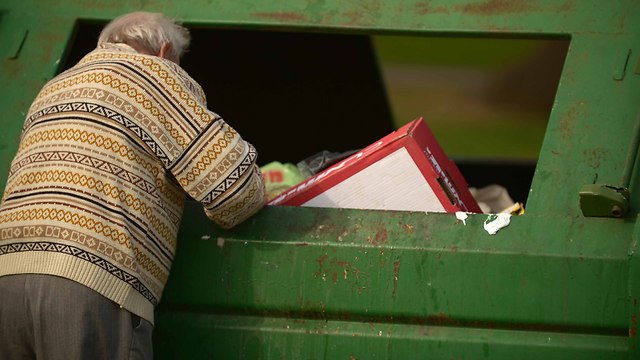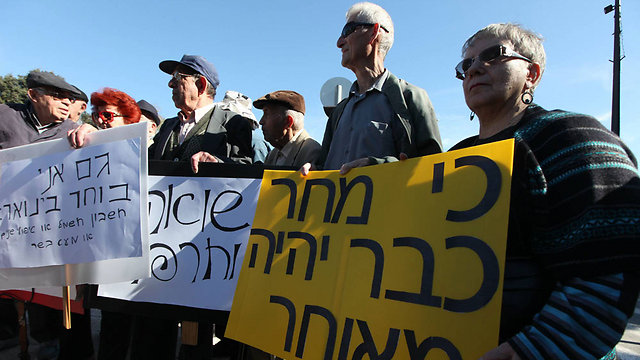
A Holocaust survivor dies every 45 minutes
Poorer and lonelier: As world marks International Holocaust Remembrance Day, figures show bleak reality behind lives of the surviving remnant in Israel
The figures were released to the public on the day the world marks the International Holocaust Remembrance Day.
Despite the government's decision to increase funds by over NIS 500 million ($143 million) in the next few years, it seems many survivors are still living in severe conditions. Some 193,000 Holocaust survivors reside in Israel, and about 123,000 of them are treated by the Foundation for the Benefit of Holocaust Victims in Israel – an organization that was founded by Holocaust survivors.
Related stories:
- Half of the Knesset to visit Auschwitz
- Swastika on Austrian tombstone defies official ban
- Heinrich Himmler's love letters found in Tel Aviv
Figures show that 86% of the 60,000 who turn to financial assistance from the organization live on less than NIS 5,000 ($1,432) a month, and 66% live on less than NIS 3,000 ($859). On average, 2,000 new requests for financial assistance are submitted every month. In the past two years about 36,000 have asked to be given refunds for medical equipment.
There is still uncertainty among the State establishments caring for the survivors. In July, Finance Minister Yair Lapid and Welfare and Social Services Minister Meir Cohen said that in order to make the treatment of survivors' rights more efficient, the government will transfer the Foundation for the Benefit of Holocaust Victims from the Finance Ministry to the Welfare Ministry, thus having all of their needs addressed in one place, yet so far the organization continues to operate under the Finance Ministry.
The foundation states that the aging of the Holocaust survivors in turn increases their nursing needs. A third of all survivors in Israel have required nursing assistance from the foundation and every month about 600 new requests are submitted.

In the past year, the government increased the budget transferred to survivors, and the number of survivors entitled to nursing hours through the foundation increased from 25,400 in the past year to 26,800 in the current year.
However, according to the foundation's general manager Rony Kalinsky, "the figures show a bleak reality of the Holocaust survivors in Israel in 2014. The painful figure of 60,000 survivors requiring the foundation's assistance every year rings warning bells and obligates us, as a society, to do a reorganization of the growing needs of the Holocaust survivors' community that is still with us."
Kalinsky added that "the winds of change in the current administration and the realization that time is working against us are encouraging, and we hope this trend continues. We have a very small window of opportunity, about five years, to ensure that the Holocaust survivors live their lives in dignity. As of today, the survivors are sicker, lonelier, poorer, and unfortunately their number continues to diminish."











